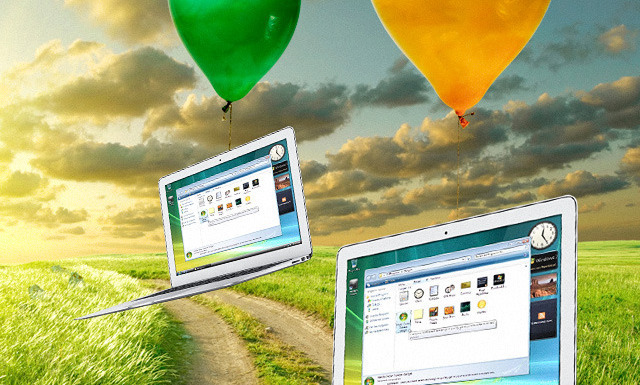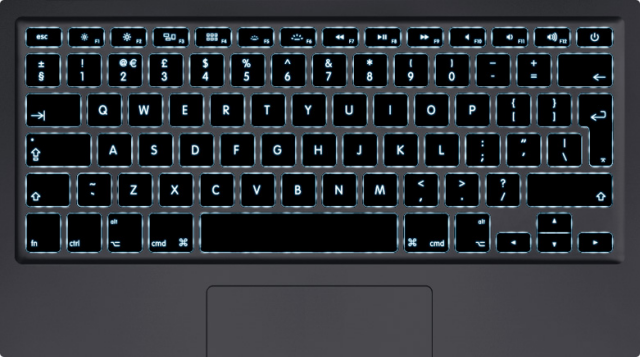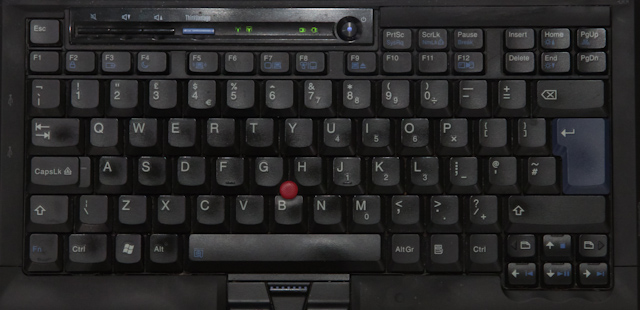
My desktop isn't the only computer I plan to replace in the next few months. I need a new laptop too, and my goal is simple: to find a 13" MacBook Air that isn't made by Apple.
It turns out that I'm not the only one wanting this mythical non-Apple MacBook Air. Intel wants them too—it calls them Ultrabooks. The chip company has been kicking the Ultrabook idea around for a few months now, and it has grand ambitions: by the end of next year, it wants 40 percent of PC laptops to be Ultrabooks.
Ultrabooks are ultralight PCs, like the MacBook Air, no more than 0.8" thick, like the MacBook Air, with Intel processors, like the MacBook Air, metal cases for superior heat dissipation, like the MacBook Air, SSD storage, like the MacBook Air, long battery life and even longer standby time, like the MacBook Air, and affordable, like the MacBook Air. Oh, and they should boot in 7 seconds or less (which at a pinch, the MacBook Air can probably pull off, too). Is the MacBook Air actually an Ultrabook? Intel told us that that's up to Apple—the MacBook Air is an Ultrabook in all but name.
Intel, keen to stimulate demand for PCs (rather than for ARM-powered tablets) is clearly so annoyed by the inability for PC OEMs to meet this specification that it recently announced the creation of a $300m "Ultrabook Fund" to invest in companies that are working to build this kind of hardware. That's a damning indictment of the PC industry.
What Intel is asking for is readily attainable. We know that because Apple's selling millions of Airs. And yet the world's five biggest PC manufacturers—HP, Dell, Lenovo, Acer, and Asustek—have so far been unable to come up with something equivalent. And apparently they're not close to managing it, either, because Intel thinks it must invest pots of cash to close the gap.
This isn't an ideal approach; it would be better if the OEMs could produce these machines on their own. Still, the impetus is now there. Problem solved? Probably not.
My quest
I'm not being difficult just for the sake of it.
The latest MacBook Air is a desirable machine in many ways. The size, weight, screen resolution, and battery life are all fantastic, and the pricing is incredible. Seriously, did Apple forget to put a 1 before the 999? Unfortunately, Apple's hardware drives me up the wall in a number of ways that might seem insignificant to you, but which together simply wear me down. I've tried living with an Apple laptop day in, day out, and I just can't.
First of all, we have the keyboard. Sure, Apple keyboards have a decent feel, and that backlight, which a lot of people seem to go crazy for, is kind of fancy. It's just too bad that Cupertino can't get the damn keyboard layout right.

I'm English—a walking, talking Brit. I put "u"s in words like "favourite" and "colour," I see plays at the "theatre," and I walk on the "pavement." This has repercussions. The first is that I've been typing on a British keyboard layout for 20 years, and you know what? I'm damned if I'm going to stop now.
Unfortunately, Apple doesn't sell a keyboard with a standard UK layout (BS 4822, for standards wonks out there). Apple has a keyboard layout it calls "UK"; I even get a £ symbol from pressing shift-3, just like on a real UK keyboard. But I expect to find #, the symbol that on American keyboards occupies the same shift-3 spot, on a dedicated key of its own, found on most keyboards around the world but not in the US. Several other keys have also been moved around. And it's for no good reason, as far as I can discern.

I can fix this flaw in software. I have a custom keyboard layout that makes the right characters appear when I press the keys, so it's not fatal. It's just ugly; the keycaps no longer match the letters that appear on-screen.
What I can't fix in software is Apple's idiotic narrow return key. On non-US keyboards, the return key is double-height, wider at the top than the bottom. The top part is not quite as wide as backspace above it, but even the bottom half is wider than a normal keycap. Not so on Apple's keyboards. The top part is just under the width of a standard key. The bottom part is, optimistically, half the width of a standard key. The result? I miss the return key all the time. Even after six months straight on a MacBook Pro, I miss. Other laptop keyboards don't do this. IBM didn't. Lenovo doesn't. Dell doesn't. HP doesn't. It's just Cupertino being difficult.
I also use the page navigation keys—the home/end, page up/page down block of six—about a million times a day. Well, except when I'm using a Mac, because (ha-ha) Apple doesn't include them. This isn't a new thing, mind you; the company has just never cared for them. The keys can be found on the full-size "extended" keyboards, but not on any portable. There are workarounds—key combinations that I can never remember—but I want real hardware keys. Unfixable.
I'm also a total sucker for TrackPoints ("nipples"). Apple's trackpads are the best in the business, and gestures are great. But I just don't care. I'm faster and more precise with a TrackPoint. Even better, give me both. A TrackPoint for pointing; a touchpad for gesturing.
On top of all that, I want to use Windows on my laptop. I'll also want to use the Windows 8 beta on it. That means I can't afford to be held hostage by Apple's lazy Bootcamp driver support. Even if all the other flaws are resolved, this one's a dealbreaker.
These might seem like minor issues. Perhaps they are; other people may not give a tinker's cuss about any of them. But a computer is essential to my job and my life. I put thousands of words into the keyboard every day and easily rack up 80 hours a week of computer use. New PCs cost hundreds or thousands of dollars, and I shouldn't have to settle for something that doesn't actually fit my needs.
So that leaves me wanting a 13" MacBook Air that isn't made by Apple. Time to go shopping.
reader comments
571